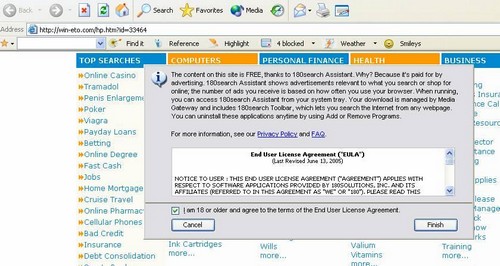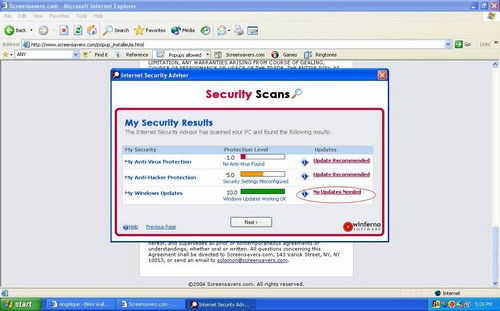There’s a rumor by a poster on SpywareWarrior which goes like this (link here):
…I am compelled to write after doing research on Enternet Media Inc. I found out what they are all about and I thought someone might be interested.
Their office in Woodland Hills was raided yesterday by 7 policemen and 5 people in suits. I can only speculate, but they were there all day and took a bunch of stuff out. I heard the words “injuction”and “putting key corporate information under a fictitious business name”.
Maybe this will be one less company out there with no conscience. …I know all this because I work directly across from that office, about 20 feet away, in an open courtyard, and could see all this, but only caught snippets of conversation. The door to the office was kept wide open all day.
Enternetmedia. As Suzi mentions on that forum, these are the Kind Friends who bring us wonderful products such as SearchMiracle/Elitebar and rogue antispyware program SpywareBomber.
If anyone has a lead or more information on this rumour, let me know.
Alex Eckelberry
(Thanks Eric)










